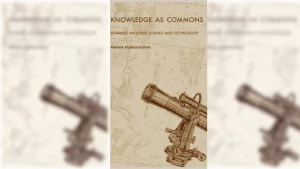 (With governance of the Internet as the path being broken first)
(With governance of the Internet as the path being broken first)
A new chapter in global governance has been opened with the launch of the NetMundial Initiative (NMI) at the World Economic Forum. This is the first time that such a corporate-led venue – although sold as multistakeholder, open, voluntary, and so on – is positioned as ‘the’ mechanism for global governance in any sector. It is supposed to be an explicit replacement of UN-based models or possibilities, which are routinely bad-mouthed by NMI proponents. Unfortunately, this initiative is being supported by the Brazilian government and a big part of civil society active in the Internet governance space.
- We appeal to the political leaders and government of Brazil to re-think their moves regarding global governance of the Internet, and restore the primacy of democracy, human rights, equality and social justice, as the basic principles of their political ideology and foreign policy.
- We appeal to the large section of the Internet governance civil society that has consented to participate in the WEF’s NetMundial Initiative to withdraw from supporting corporate led governance models, under the mistaken notion of being able to obtain ‘participation’ in global IG and keeping the states at bay from ‘controlling the Internet’. They should re-examine their actions, and reconnect to what are traditional civil society norms and motivations. As a start, they must open up a dialogue with civil society groups in other areas, before taking such a precipitous step.
The increasing stranglehold of neoliberal forces over the affairs of the world hardly needs a restatement. Strong democratic movements from below are perhaps the only real solution to this menace. Meanwhile, it remains important to resist the neoliberal juggernaut is all the ways and venues that we can. One of the prime areas of its assault has been global governance, finding a soft target in the poor political organization and authority at the global level. Capturing this commanding heightalso makes it convenient to push neoliberal ideology and ‘policy-solutions’ downwards, especially in a highly globalised economy, and through the increasingly globalised elite classes the world over.
Within the global governance space, the chosen early target is the governance of the Internet. There are many reasons for this choice. The foremost is that this is a virgin territory with governance paradigms still being built. It is obviously much easier to put the stake in a new land rather than push against preexisting structures and mechanism. Second, Internet has some level of inherent global nature. Third, its techno-governance reins are still in the hands of the US government, the main political ally of the neoliberal onslaught. Fourth, the Internet has a certain strong post-modern character, wherein it is easy to hold forth against structures, law and governance, and cover up real controls if they are somewhat diffused and networked, as is true for the Internet. And lastly, as a connected point, the state can easily be designated ‘the’ enemy of a free Internet and therefore the benefit of non-state based governance mechanisms is relatively easy to sell.
Such a make-believe doctrine of ‘Internet exceptionalism’ gets an instinctive, and often politically unexamined, support from the two important quarters: Internet techies – who still wield considerable power in the area of Internet governance – and the young ‘digital natives’ who imagine in the Internet the possibilities of a new unbounded future. The neo-liberals have been opportunistic to leverage this real and powerful cultural force. They have somewhat successfully declared that the Internet is special and in its governance governments cannot have a pre-eminent role. Governments have to equitably share governance and policy power with large corporates. To sugarcoat this illogical demand, other non-governmental actors are reluctantly added to the mix. This governance system is euphemistically called as ‘multistakeholderism’, or more specifically, equal-footing multistakeholderism, to make clear the element of parity of power of big corporations with governments in global decision making. Let no
one be under any illusion that this is simply about multistakehoder consultations towards policy development. To quote an analysis of the WEF’s Global Redesign Initiative (GRI):
- One of GRI’s major recommendations is that experiences with “multistakeholder consultations” on global matters should evolve into “multi-stakeholder governance” arrangements. This transformation means that non-state actors would no longer just provide input to decisionmakers (e.g. governments or multinational corporations) but would actually be responsible for making global policy decisions. …GRI also recommends a second new form of multistakeholder governance for conflict zones in developing countries. They propose that the nonstate actors, particularly the business community, join with the UN system to jointly administer these conflict zones. ….. There are some sharp differences between “multistakeholder consultations” and “multistakeholder governance”, some of which are often blurred by the loose use of the term “multistakeholder.
There exists clear evidence of how global Internet governance has been chosen for the first foray of this post-democratic governance model. To quote the WEF’s Global Agenda Council on the Future of the Internet from GRI’s final report:
- This means designing multistakeholder structures for the institutions that deal with global problems with an online dimension. Thus the establishment of a multistakeholder institution to address such issues as Internet privacy, copyright, crime and dispute resolution is necessary. The government voice would be one among many, without always being the final arbiter.
Multistakeholder Internet governance is to be the thin end of the wedge, with the ultimate objective to introduce such a form of governance in all sectors as their inevitable digitalisation takes place. Quite cannily, the report goes on to observe:
- “And as ever more problems come to acquire an online dimension, the multistakeholder institution would become the default in international cooperation.”
The strategy is obviously well-thought out. One could consider these as expected fantasies of the World Economic Forum kinds, since the WEF is often taken to be the apex of global neoliberal ideology. However, the bad news is that the caravan of neoliberal capture of global governance has already set out – and in the most grand fashion, with support from some key governmental (US for sure, but, quite surprising, also Brazil) and civil society actors.
The new NetMundial Initiative as been announced as the venue “to solve issues in concrete ways to enable an effective and distributed approach to Internet cooperation and governance”. This initiative is being driven by the WEF along with ICANN, the body that governs Internet’s addressing system under US government’s oversight, and, the Brazilian Internet Steering Committee. The Initiative is clearly positioned as ‘the’ global forum for governing the Internet, and as a replacement of, existing or possible, UN based processes, that are openly ridiculed by its proponents.
It is most unfortunate that the Brazilian government which has often provided leadership on many a progressive causes to developing countries, and even to civil society groups, has chosen to partner in this neoliberal plunge of historic significance. Would the Brazilian government, and its ruling ‘Workers Party’, really like to be remembered as among the pioneers who brought a post-democratic governance model to the world, first time in a concrete way through the NMI? Does this really represent the ideology and foreign policy objectives of the government and the party? One still thinks, not, and very much hope it is an aberration that will be corrected.
In our view, a small section of ‘Internet enthusiasts’ within Brazil have been able to sell to the establishment in Brazil the (equal-footing) ‘multistakeholderism’ model as a post-democratic form of governance that is fit for the global Internet. They have succeeded in this because (1) there are indeed some new cultural paraphernalia around the Internet which challenge traditional ways of political thinking, and (2) progressive groups in Brazil and elsewhere have not been able to present a coherent framework and model that adequately addresses these new challenges within democratic norms and structures. We appeal to the political leaders and the government of Brazil to re-think their latest moves regarding global governance of the Internet, and restore the primacy of democracy, human
rights, equality and social justice, as the basic principles of their political ideology and of foreign policy.
Perhaps even worse news is about the role of global civil society involved with Internet governance issues. Without going into the structure of civil society in this space, and, for instance, the insistence of a good part of it that they are not bound to be transparent vis a vis their funding, it can still be said that much of the involved civil society has been mislead to support the neo-liberalisation of global governance of the Internet. The latest of course is their enthusiastic joining of the NetMundial Initiative. A lot of key civil society actors have in fact been the insiders in shaping the NetMundial Initiative, at times with the aim of making it more outwardly palatable to the civil society. For instance, in the second reiteration of the Initiative, the Brazilian Internet Steering Committee is being foregrounded much more, because it was felt that WEF is not the best of faces for the initiative for some actors. This however has been done without at all changing the essential character or objectives of the initiative. Many civil society actors fell for the ploy because they consider the few seats offered to the civil society in the initiative as a gain vis a vis participation of civil society in IG affairs. Others are so embroiled in fights against statist abuses of the Internet (and rightly so) that they fail to see the neoliberal trap on the other side, and fall into it unsuspectingly.
We appeal to the large section of the Internet governance civil society that has consented to participate in the WEF’s NetMundial Initiative to withdraw from supporting corporate led governance models, under the mistaken notion of being able to obtain ‘participation’ in global IG and keeping the states at bay from ‘controlling the Internet’. They should re-examine their actions, and reconnect to what are traditional civil society norms and motivations. As a start, they must open up a dialogue with civil society groups in other areas, before taking such a precipitous step.
To repeat, this is a turning point for global governance, and for general democratic governance of our societies. We seek support from progressive groups and individuals in different sectors with regard to the above call to major actors involved in the NetMundial Initiative to reconsider their support and participation in it. We do not have any problem with the WEF or any other group having their own initiative on Internet governance. However, it should not positioned as ‘the’ initiative, and in competition to legitimate global governance forums, as is the case with the NetMundial Initiative.
Progressive actors should get together to develop and advocate frameworks and mechanisms for governance of the global Internet that are democratic, participative and open, and able to equally deal with abuse of power by big corporates as of the states. These frameworks should however not just be reactive. They should also be able to provide viable alternatives to address pressing global Internetrelated public policy issues in a democratic manner



